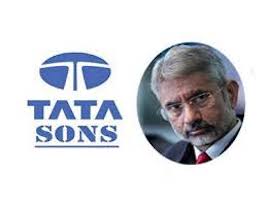
NEW YORK (TIP): From ‘phenom’ Maitreyi Ramakrishnan to innovator Rohan Pavuluri, five Indian Americans figure in Time magazine’s second annual TIME100 Next list of people “poised to make history.”
Time describes the list as “an expansion of our flagship TIME100 franchise that highlights 100 emerging leaders who are shaping the future. “Everyone on this list is poised to make history,” says Dan Macsai, editorial director of the TIME100. “And in fact, many already have.”
Lone Indian American among the ‘Phenoms’ is Maitreyi Ramakrishnan, who plays the lead role in ‘Never Have I Ever,’ profiled by Mindy Kaling, co-creator of the TV series about the life of a first generation Indian American teenager. “When you’re a minority woman with your own show, you gotta represent. It’s a tough job to be in that spotlight, where you are scrutinized for your every action, but it’s exhilarating too,” writes Kaling.
“People come up to you at the airport or online and say those three magic words: ‘I feel seen.’ It’s a huge responsibility — and Maitreyi Ramakrishnan is exactly the kind of talented young woman who is up to the task,” she writes. “While she might come off as a carefree teen in her hilarious TikToks and Instagram videos, Maitreyi — who plays the lead role in “Never Have I Ever” — is a gifted comic actress.”
“She studies her craft and takes it seriously. Moreover, she’s an artist who cares deeply about the material she’s performing, and what it’s saying. She has an activist’s heart and wants to use her platform to help others.”
“What’s most extraordinary about Maitreyi is that when you’re with her, you think you’re simply talking to a cool, smart teenager, but later, when you see her work onscreen, you realize you were actually interacting with a great artist at the beginning of her journey,” Kaling writes.
In the early days of the COVID-19 pandemic, Instacart faced a tidal wave of orders, as people with means opted en masse to pay the service’s workers to buy groceries for them, his profile notes.
Mehta calls that period a “wartime moment” noting, “We just didn’t have enough shoppers.” Instacart went on a hiring binge in March 2020, bringing on 300,000 gig workers in a matter of weeks; the next month, it announced it would hire a quarter-million more.
“But as usage soared, Instacart faced new criticism about the way it treated its workers, including labyrinthine sick-pay policies, frequent rule changes for shoppers and demanding performance metrics.”
And after pouring more than $20 million into a controversial ballot initiative in California, Instacart—alongside other firms such as Uber and Lyft—decisively won that bid last fall to avoid classifying their workers as employees under state law.
Mehta says, “This is going to be a conversation that we’re going to have as a society over the next decade or so,” about the gig economy: “The ecosystem that we want to build is one that recognizes that flexibility is going to be an important part of people’s work.”
In the meantime, Instacart — which raised more than $500 million in venture-capital funding last year — continues to expand, his profile noted. “The smartphone is the supermarket of the future,” Mehta says. “We are going to help co-create that.”
Twitter CEO Jack Dorsey was on a private island in the Pacific when he found out President Trump had been suspended from his platform. Conveying the news, on Jan. 6, was Indian American Vijaya Gadde, Twitter’s top lawyer and head of policy.
In a phone call, first reported by the New York Times, Gadde told Dorsey that the decision had been taken to reduce the risk of further violence after the attack on the Capitol earlier that day, Time noted.
Within two days, Gadde and a team of other employees had persuaded a hesitant Dorsey to ban Trump permanently.
“Gadde, 46, is one of Twitter’s most powerful executives,” Time said noting, “Her boss, Dorsey, has delegated to her Twitter’s content-moderation decisions.
She was the architect of the 2019 decision to ban all political advertising and is responsible for the warning labels that Twitter applied to Covid-19 and election-interference misinformation in 2020.
“While Twitter is still home to much misinformation and harassment, Gadde’s influence is slowly turning the company into one that sees free speech not as sacrosanct — but as just one human right among many that need to be weighed against one another,” Time said.
Figuring among the advocates is Dr. Shikha Gupta, executive director of Get Us PPE organization.
“The early days of the Covid-19 pandemic were some of the darkest in America’s history,” writes Andy Kim, a Democratic Congressman from New Jersey.
“A leadership vacuum from the White House contributed to health care professionals across the country lacking the personal protective equipment they needed to stay safe and save lives.”
“Gupta wasn’t on the White House Task Force,” Kim noted. “She wasn’t a governor or a member of Congress. She held no title other than doctor and citizen.”
But when she and her colleagues saw a need — and a hashtag — they met the moment and took action.
“Powered by a dedicated coalition of medical professionals and other team members, the Get Us PPE organization — where Gupta is the executive director — has helped distribute more than 6.5 million pieces of PPE to frontline workers,” Kim writes.
“Their fight, like this pandemic, is not done. But across the country, millions of people working to save lives can do so with confidence because of Gupta and her colleagues’ small acts and incredible impact,” Kim added.
Among the innovators is Rohan Pavuluri, founder of Upsolve, a nonprofit that offers a free online tool to help users fill out bankruptcy forms on their own. To date, Upsolve has helped US users relieve more than $300 million in debt, notes his profile.
“We’ve found a way to use technology to address a civil rights injustice at scale,” says Pavuluri, who founded Upsolve in 2018 when he was 25.





Be the first to comment